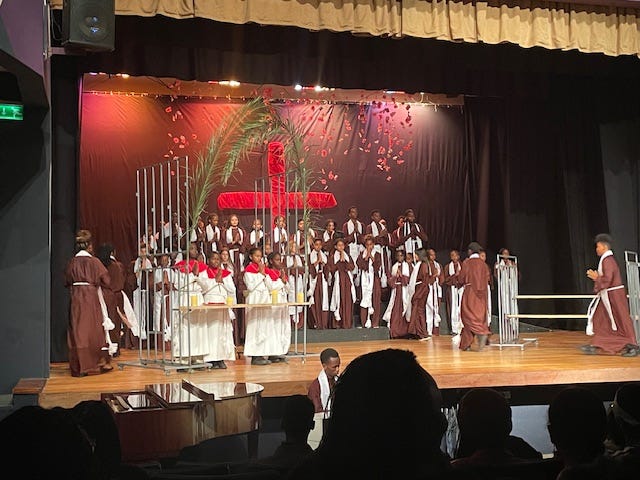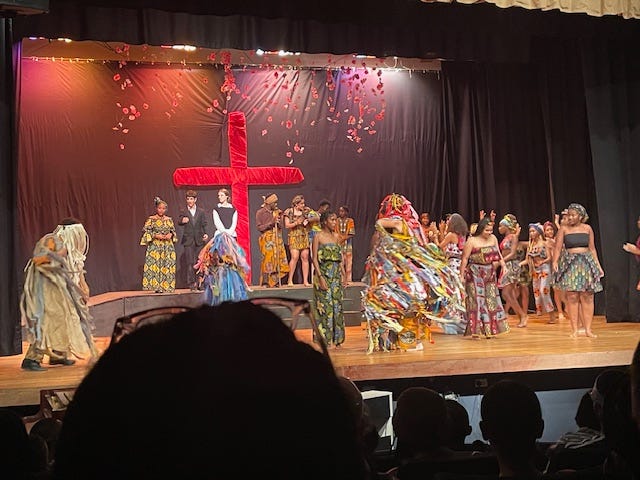Hello,
Welcome to the first edition of The Curtain Call reviews!
The first play I got to watch this year was an adaption of Chimamanda' Ngozi Adichie’s ‘Purple Hibiscus’ performed by students from Braeburn International School Arusha. Having read the novel over a decade ago, the plot had slipped my memory, offering me a chance to experience the play with fresh eyes. However, I quickly realized that a quick Google refresher but have been a wise move this time round.
For context, Purple Hibiscus is a novel about the “emotional turmoil of adolescence, the powerful bonds of family, and the bright promise of freedom”. In the novel, fifteen-year-old Kambili and her older brother Jaja navigate their privileged yet oppressive life in Enugu, Nigeria, shielded from the world's troubles by their wealthy and fanatically religious father. As political unrest disrupts the country, the siblings find refuge in their aunt's lively home, discovering a world beyond their father's control. The return home sparks escalating tensions, forcing Kambili to summon the strength to unite her family amidst a backdrop of devotion, defiance, and the blurred lines between freedom, childhood, love, and belief.
Now back to the review: when I first bought tickets to watch the play, I thought that because it was a high-school play it would be pretty civil. This school had previously performed some spectacular musicals so my expectations were quite high. Little did I know that this time round, they were tackling a deeply tragic narrative. With themes of domestic violence and an overwhelming sense of sadness, the play was a far cry from a light-hearted theatrical experience. But that didn’t stop the students from trying their best.
My favorite actors were Kambili’s father and aunt who truly embodied their characters and gave life to such strong personalities. Kambili’s father in particular was a character we all hated in the end - a sign of just how good the actor was. He was incredibly violent, fanatically religious and disturbingly resolute on his so called ‘values’. The aunt was a breathe of fresh air in an otherwise depressing setting. The other characters were also good. Although, I would have loved to see them embody their roles even more, especially when it came to expressing the Nigerianness in the play. I must say though that the lack of microphones did the entire play a huge injustice. There were times when I was truly struggling to hear what the actors were saying.
I should also add that the transitions between the scenes felt a bit choppy, making it difficult for the story to flow smoothly in some areas. I figured it might have been because they were trying to fit a whole novel into two hours which is no small feat for anyone. But alas, it was the final scene that felt most incomplete. The ending was quite abrupt and took us by surprise. It was only after a couple of minutes of puzzled silence that we all realized the play had concluded.
In conclusion, it’s fair to say that the play was performed fairly decently. Despite the hiccups - and the fact that the play should have come with a trigger warning - the students tackled the story with commendable passion, giving it their all. Mad props to the teachers who worked hard behind the scenes to give the kids a chance to shine. There is room for improvement but it’s safe to say that BISA has some pretty talented actors who could very well be gracing the Broadway or West End stages in the near future.
Cheers to more drama (the good kind)!
Final Rating:
5 out of 10
Quote of the Day:
We did that often, asking each other questions whose answers we already knew. Perhaps it was so that we would not ask the other questions, the ones whose answers we did not want to know.





